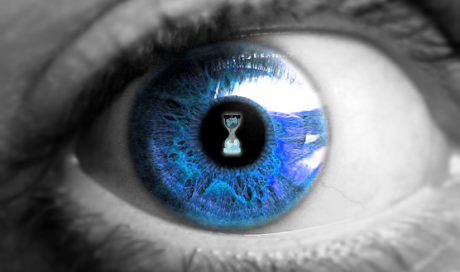Wikileaks: The diplomatic cables release and media reactions

This week-long serialisation forms the vast part of my undergraduate dissertation: "An empirical analysis of Wikileaks, pre- and post- the 2010 diplomatic cables release". Media organisation or terrorist group; revolutionaries or journalistic evolutionists? This post will introduce the work of Wikileaks during the 2010 U.S. diplomatic cables release, and how this impacted the world of journalism.
When the whistleblowing organisation Wikileaks released the diplomatic cables, the organisation in a single week angered all but every government in the world.

The cables release, dubbed by the media as 'Cablegate', were alleged to have been stolen and sent to Wikileaks operatives by a U.S. soldier working in the Gulf. The cables were then disseminated to the world's media through pre-agreements with a handful of major international news outlets.
Over 250,000 classified diplomatic cables from secure United States' military networks were leaked on the Internet, and still continue to do so. Hundreds of thousands of conversations from diplomats and ambassadors from embassies around the world, which were sent back to the U.S. Department of State, gave media outlets time to redact names to protect informants.
Through this process, citizens across the world were given an unparalleled insight into the world of government, politics and diplomacy; offering insights and analysis never seen in the public domain before.
The cables release was the biggest cache of classified information ever released in the United States, and implicated many nation states in the Western world.
It was not only an embarrassment for Western democracies. For many governments and regimes in the Middle East, it was the beginning of the end of their reigns.
It initiated a vastly polarised conversation across the entire globe for whether the leaks were 'good' or 'bad' for democracy. Some debated as to whether it opened to become accountable on a scale never seen before; where others stated that it endangered diplomacy and governance in tougher regimes and less stable regions of the world.
With the rise of the 'super-injunction society', gagging orders are being handed to those with the socio-economic viability to afford them through lengthy, expensive court cases. The ordinary citizen, on the other hand, has only limited legislative capability through freedom of information applications to request data they may not be guaranteed to receive [PDF].
Information and intelligence is the modern day replacement for cash currency. Governments and ordinary citizens will go, and have gone to great lengths to prevent leaks and information being accessible in the public domain.
The after-effects of the diplomatic cables release, however, changed how we regarded our legislators and executives. Similarly to that of the Enlightenment -- where science reigned over religious insight -- many eyes were opened to the goings on of governments and the seemingly shady world of politics and diplomacy.
As a result, more and more people wanted answers, in that the slow release of cables were not enough for the world's media and in many cases, more questions resolved than answers themselves.
As the vast majority of the cables were still considered 'classified material' by the U.S. government, many foreign governments would not and did not respond to media or citizen requests on individual leaks.
Not content with the work of Wikileaks, or felt the organisation was too centralised, many activists splintered into their own dedicated leaking organisations. From OpenLeaks to UniLeaks -- even the Wall Street Journal launched its own whistleblowing repository.
For journalists, however, the cache of diplomatic cables cracked the world of journalism wide open. For years many had been under non-disclosures and covered under legislative injunctions to prevent classified or secret information into the wider public domain.
The leaks allowed journalists to analyse and offer insight without fear of infringement of rights, laws or reprisals. In effect, it has given many journalists carte blanche to cover the aspects of governance and politics where previously they had been restricted from certain details.
Within a week of the leaks, all but every publication in the Western world had covered a story on the leaks; even U.S. newspapers and online magazines, reporting on still classified U.S. intelligence.
A tweet from @wikileaks, the account behind the media arm of the organisation, likened Wikileaks enabling 'journalism 2.0'; a reference indicating the 'next level' of journalism.
As academics, it becomes immediately apparent and inherently necessary to pick out articles from legitimate sources and validated sources. The BBC, for example, is a prime source of accurate, informative and unbiased news and reporting, whereas other tabloid newspapers may be inaccurate or pulling the strings of the corporate mechanism.
The Guardian features heavily, as one of the news and media organisations which was given prior access to the leaked diplomatic cables and offer a unique perspective and preemptive analysis into the cache.
Journalism, arguably, is no longer limited to the private sector newspapers and the broadcasting media. The 'journalism 2.0' factor enabled anybody and everybody with a social media account to give live reaction and further opinion to the breaking news; making governments therefore far more accountable to their electorate.
Continue reading
The next post in this series will introduce the work of Wikileaks during the 2010 U.S. diplomatic cables release, and how this impacted the world of journalism. Read more.
In this series:
- Part 2: Wikileaks: A brief history, pre-2010
- Part 3: Wikileaks: How the organization functions and operates
- Part 4: Wikileaks: How 'Anonymous' subverted the most powerful governments
- Part 5: Wikileaks: How the diplomatic cables were leaked
- Part 6: Wikileaks: How the diplomatic cables sparked the 2011 Arab Revolutions
Previous content:
- Wikileaks Assange: 'Facebook open to US intelligence'
- US subpoenas Wikileaks tweets, and why this could affect you
- Why Wikileaks cannot be a 'terrorist organisation'
- State Dept: Discuss Wikileaks, risk your career prospects
- CBS News: Assange: No one harmed by site's leaks
- CBS News: Open hacking season - on everyone!
- Full ZDNet coverage on Wikileaks